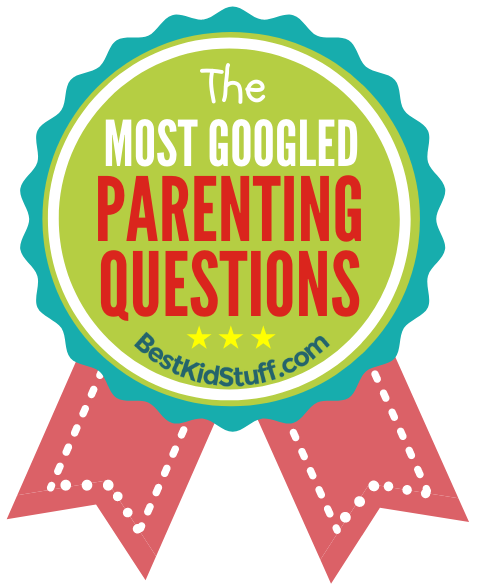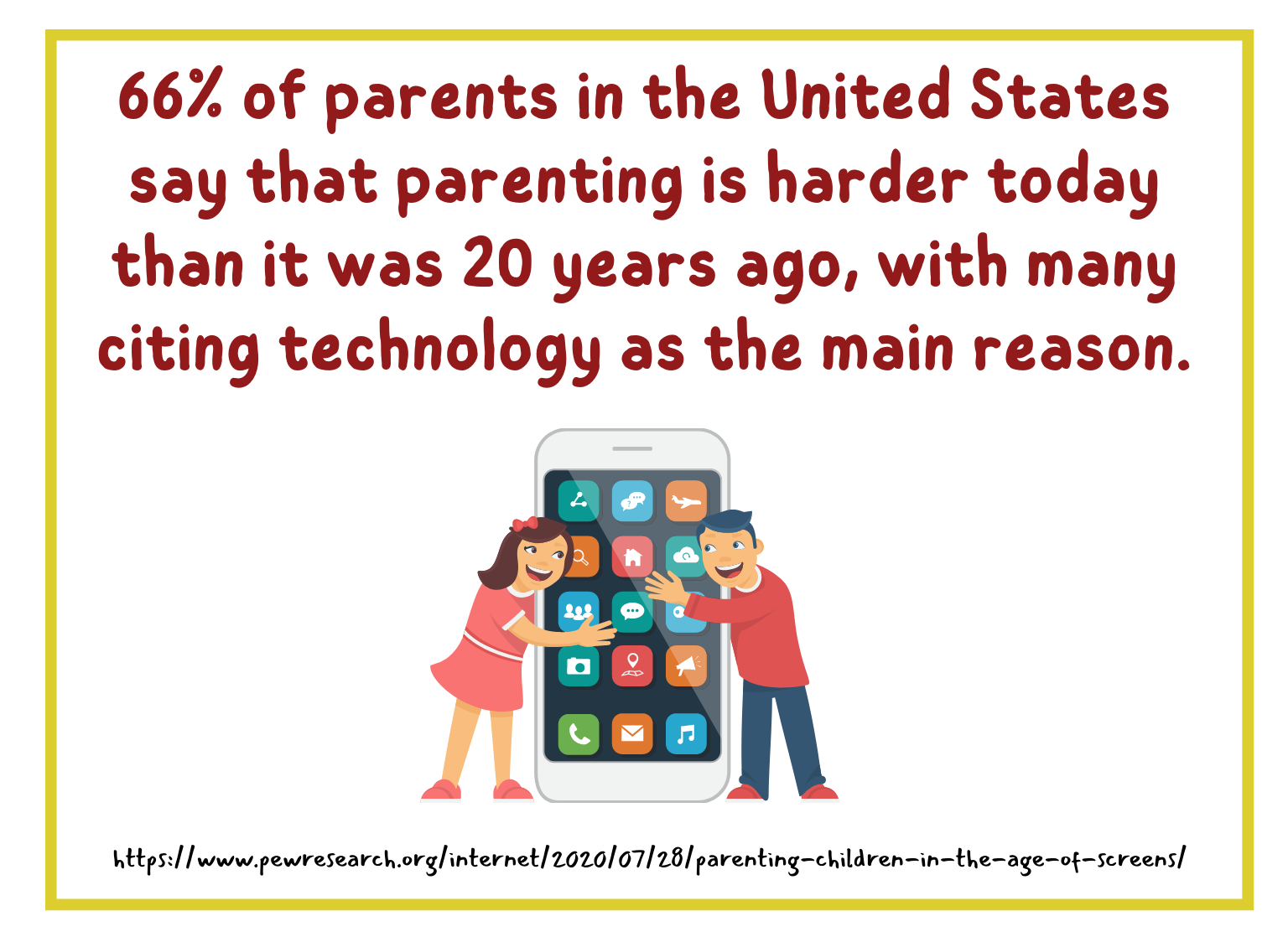
Most parents in the US believe they deserve a good parenting score, according to Pew Research. Roughly 57% of millennial moms say they’re doing a very good job as parents. Strange as it may seem, good parenting, parenting styles, and general childcare are relatively new concepts. In recent years, the scientific world has become interested in finding ways to raise a child effectively and allow them to grow without compromising the all-important element of fun in their journey.
A non-profit group Zero to Three created a survey called the Millennial Connections, where they surveyed about 1000 respondents who care for kids five years old and below. The data has shown that about half of all respondents turn to mobile-parenting apps and science-based websites for parenting tips and advice. However, the study emphasized that parenting tips provided by immediate family members like grandparents and siblings are still more valuable than those from other sources.
To say that raising healthy, happy, well-adjusted children can be overwhelming is an understatement. Expert advice and societal expectations bombard modern parents, but ultimately, many do not get the support from family members or neighbors the way their parents or grandparents did half a century ago.
And so the question begs, “Is being a parent always THIS hard?”
What are the different parenting styles?
It’s no exaggeration to claim that parenting is a daunting task because it is. The many changes in society continue to impact the way parents raise their children. As the years go by, priorities, preferences, and choices evolve, demonstrating how parents manage their households and raise their kids.
Your ways of raising children may be different from your own parents because of cultural and socioeconomic factors. All these do not imply, however, that their ways or yours aren’t the way to go. In fact, there is no exact science to determine if your approach to parenting is right or wrong. Each parenting style is different, but they all share the same goal: to raise kids to be the best version of themselves.
As parents, you may choose different ways to raise your children in a variety of ways. Different parenting styles refer to different methods of raising children that parents implement in their daily lives. The way you parent your child can impact everything from their behavior to their self-esteem. This is why it’s crucial to decide on what approach or parenting style to follow and execute. A parent’s style should support healthy growth and development because such influences last for the rest of a child’s life. Try to ensure that your parenting style promotes healthy growth and development. To give you information on the different parenting styles, here are the four kinds:
- Authoritarian
It can be inferred that authoritarian parenting styles focus on imposing power and authority upon children. It’s considered the most disciplinary course to take, as some parents feel that this approach can instill self-discipline in their kids. Authoritarian parents restrict their kids from expressing their opinions and instead force the children to follow the rules. When imposed mindlessly, making kids feel bad for their mistakes can become the focus. Parents can potentially lose sight of the value of enabling kids to make good decisions for themselves.
- Permissive
Permissive parenting in this manner is lenient, and parents only intervene when there is a serious problem. A huge amount of trust is given to the child, allowing them to decide according to their judgment. Children who beg for things from permissive parents might be granted certain privileges. It is more common for permissive parents to act as friends than parents. In general, parents encourage their children to talk about their problems with them, but they rarely attempt to discourage bad choices or bad behavior, as they believe the children can learn everything by themselves.
- Authoritative
Besides adopting a set of rules and using consequences, authoritative parents also consider their children’s opinions. They might establish ground rules but not entirely ignore justifications and reasoning by the children. Authoritative parents validate their kids’ feelings but emphasize that, ultimately, they are in charge. Parents who take steps to prevent behavioral problems spend effort and time preventing those problems before they begin. As part of positive discipline, they use praise and reward systems to reinforce good behavior. This parenting style gives a sort of balance for discipline and freedom to the child.
- Uninvolved
Many uninvolved parents have little idea what their children are up to. They almost don’t imply any rules. Parental attention, guidance, and nurturing may be lacking for children when parents choose uninvolved parenting. Children raised by uninvolved parents are expected to be self-sufficient. Although this may not seem intentional, uninvolved parenting means other aspects in their lives that they need to prioritize, other than caring for or raising their kids.

What are the usual challenges for parents?
- Improper Eating Habits
Parents usually have trouble getting their kids to eat healthy meals at the proper times when they’re hungry. It is difficult for them to consume healthy vegetables, and they often opt for eating sweets and junk food. It’s mostly hard for parents to encourage them to steer away from fast-food restaurants. And the worst-case scenario happens when your kid starts throwing away healthy food, so you’ll cave and eventually allow them to eat what they want.
Forcing is never an effective solution in such cases. If your child consumes junk foods continuously, try talking to them about the effects on their health. Make sure he knows the facts about obesity and other serious health issues. They will learn how to prepare a nutritious meal if you let them participate in kitchen activities.
- Complaining and Rumbling
Every child complains and whines to their parents. They do this in even the smallest details and situations. It could be anything small that happens at school, with his friends, or even at home, so you can expect them to whine about anything under the sun.
It is important to understand that the only reason for a kid to complain and whine in the first place is that he wants to know whether you are listening to him or not. To resolve this problem, talk to your kids when they complain and propose a solution immediately.
- Aggression and Anger Issues
Single parenting issues could be a cause of your kid’s aggressive, angry, and scream-and-break-things behavior. If your child resorts to violence to get what they want, this problem can escalate and become a source of frustration and stress to you and your entire household.
You should not assume that your child’s angry behavior is unintentional. You can ask him if anything at home or outside is causing them to behave this way. Make your kids understand that you’re always willing to listen and talk about these problems.
These are some of the common challenges parents usually face, but there are even more minor or severe parental challenges that you should be anticipating. Depending on the growth phase of your kid, you’ll discover new and probably unique difficulties that other parents may or may not experience.
Top 15 Most Googled Parenting Questions:
Now that you know about parenting in general, the many parenting styles, and the challenges you can expect, it’s time to learn the questions parents are asking! We believe it is important for every parent to ask questions, no matter how silly they may sound, as they embrace this huge, lifelong responsibility!
These questions are the most frequently searched on Google. Let’s discover why questions are so common, and what the answers could be.

1. “How to change a diaper?“
It’s the first parenting challenge: changing a baby’s diaper. It sounds quite simple until you realize it isn’t, for first-time parents in particular. The thought of changing a baby’s diaper without disturbing their sleep can be daunting at first, and practice is your answer to that!
“How to change a diaper” is often googled mostly by fathers. Mothers may have researched ahead of time or asked their friends around, while many fathers get thrown into the diaper-changing situation with absolutely no idea how it’s done. But fret not. There are many resources online, including video clips on how to do it step by step.
To briefly answer the question, here’s are the basic steps: gently wipe the front and back of your baby with the wet washcloth, cotton balls, or baby wipes. (Never wipe from the back to the front, especially with girls, or you might spread bacteria that can cause urinary tract infection). Your baby’s legs might need to be lifted by the ankles so you can get underneath them. Pay attention to the creases on your baby’s thighs and buttocks. After wiping your baby dry, apply diaper ointment, and secure a new diaper.
2. “How to potty train a baby?“
It’s not uncommon for parents to google this question. Especially if your baby is your firstborn, it sure isn’t easy to pottery train them! Sure, you may have asked advice from your mom, who may have told you how you potty-trained yourself. But remember that what worked for you… may not work for your baby.
Teaching a new thing to your child isn’t the kind of thing you can achieve with one method. Each child is unique, so you should train yours differently. Once you have learned which method is most effective for your baby, you will know what to do. Stories, rhymes, laughing, etc., are things that every child enjoys. Provide your child with these tools, and you can break the barrier between them and toilet phobia. Some tips you can include when potty training allow them to take the lead and give them a reward or a special treat every time they do so.
3. “Why does my child pee in the bed?“
Another topic mostly googled is when parents want to know why their child pees in bed. Well, first of all, this is normal, so don’t worry and make a big deal out of it. 15% of children still wet their beds by age 6, leading pediatricians to rarely address the problem before age six. If your kid also sleeps deep at night and won’t wake up even when their bladder is full, you can expect this recurrence to happen. A smaller bladder or making more urine than usual at night are also possible reasons for this. Think about your childhood too, and if you stopped wetting your bed at a later age, you could expect your child to follow after you, as sometimes genes play a part in this.
It’s common for parents to google this question, as sometimes your kids might still pee in the bed even when they’re a tad bit older than five years old. But as reasons stated above, it could still happen now and then.
4. “How do I get my baby to sleep in a crib?“
If you’re likely losing sleep because of tending to your kid all night long, then it’s understandable why this question is being googled by many parents worldwide. Your baby might not be sleeping well at night, especially if they’re left in the crib, so you prefer to take them and hold them as they start to fall into slumber.
And what about you, then? Well, you probably need to find the right timing to lay your baby down into the crib and ensure that they are in a deep sleep. Then and only then can you sleep too.
5. “How to bathe a newly born baby?“
A new mother and father understandably worry that they will make a mistake while carrying their baby for a bathing session. With the super soft and fragile body parts of your baby, it sure needs more care and effort when bathing them. Parents who google this question might already know the answer: bathe your baby in a clean and sanitized sink while using hypo-allergenic baby bathing products.
However, some parents still google the question due to worries and concerns about not being careful enough or being afraid to do something wrong, which might hurt the baby when bathed.
6. “Why does my child love to destroy things?“
Toys tend to get ripped apart by toddlers and preschoolers for simple reasons of curiosity. They want to discover the mechanics behind how toys work, what happens to paper when they’re crumpled, and what crayons are made of when they break it into two. Sometimes, breaking things might be purely accidental, but as parents, it’s better to let it go and know that your toddler damages things out of interest and curiosity.
Is your child destroying things in anger? Such behavior needs to be evaluated further. Outbursts may be triggered by a history of trauma, stress, a lack of sleep, or inconsistent or violent discipline. Children with developmental disabilities or autism can also exhibit destructive behavior. So stay alert with symptoms and observe how your baby acts when they’re trying to destroy things.
7. “Why does my baby get a fever?“
Colds or other viral illnesses are the most common cause of a child’s fever, but bacterial infections might also trigger a fever. Observe your baby’s condition for a few hours first, and if the fever doesn’t go down after giving medications, you may check in with your pediatrician. Parents google this question for very obvious reasons, though. It’s always a scary thing to see your baby suffer from pain or any other illness.
Be mindful of whether the fever is accurate or not. When checking your child’s temperature, use a thermometer all the time. Your child’s temperature can soar much higher (106 F) without harming them. However, it would be best to call your pediatrician and explain your baby’s fever, especially if your baby is still a newborn.
8. “Will my kid grow tall?“
This interesting question is also googled by some parents who seem to be curious about it maybe. The obvious answer is that tall parents will be more likely to have a tall kid, but you need to wait and see. You’ll most likely find Google answering this question based on genetic factors. But quite, in reality, no one knows the answer to this question.
9. “How do I stop my baby from crying?“
If you’re the type of parent who has a baby who’s always crying, then it’s understandable why you’d like to have answers to this question. But the real nature of babies is that they always cry a lot.
Every newborn cries and gets fussy from time to time. During the first six weeks, it’s normal for them to cry for 2 to 3 hours a day. Children cry the most during the first three months of life. So as new parents who are still adjusting to this new journey, you’ll also learn the reasons why your baby cries. Some reasons include when your baby is hungry, sleepy, tired, needs a diaper change, or when it’s too cold or too hot.
10. “Why does my kid experience nosebleed?“
With the help of tiny blood vessels that lie just inside our nostrils, our nose humidifies and warms the air that we breathe. This area is sensitive, and it is also often disturbed by infections and dry air. Not to mention, your little one might pick their nose. All these factors could lead to the possibility of having a nosebleed.
Children who suffer from repeated nosebleeds are most likely to blame the weather and nose picking, but sometimes other factors like colds and allergies also come into play.
To stop a nosebleed, press steadily on your child’s nostrils (not the nose bridge) for five to ten minutes. If your baby experiences frequent nosebleeds, that could indicate several chronic or serious conditions, so it’s crucial to have it checked by your pediatrician.
11. “How to soothe a baby?“
Perhaps after googling why your baby cries, this next question is the next thing you want to google. How exactly do you soothe a baby? Parents want to know the best ways to do so. Soothing a baby can remain ineffective if you’re not doing it right.
Comforting a baby would sometimes require you to swaddle it, play a calming sound in the background, or hold your baby in your arms until they would calm down. If you practice and have patience, you will learn what works best for your baby.
12. “Why does my kid hate me?“
If this has happened more than once, it’s quite understandable why parents would like to know the answer to this question. It is common for children to get frustrated or angry with their parents, and they often test limits. However, it’s reassuring to know that they don’t really hate their parents. The question usually arises when parents’ coping skills have been exhausted by a stressful or depressive period.
During their first three months, many babies suffer from colic while clinging to their mothers continuously. When they’re angry, toddlers universally act aggressively, like throwing tantrums, kicking, biting, and shouting.
It is common for children to be demanding by age 2, but 3-year-olds can be even more demanding – and can express their demands better. And then you have to deal with more stress at raising teens when their hatred and negative mood swings are on the rise.
13. “When do babies start teething?“
This topic that parents commonly google is also a usual question. As parents, you’d want to know when your baby will develop their own complete set of teeth, so you can also adjust their food and meals intake.
Another reason why parents like to know when teething will happen is due to the symptoms that come with it. Some teething symptoms include irritability, disturbed sleep, swollen or inflamed gums, drooling, loss of appetite, diarrhea, and increased biting and gum-rubbing. When you see some of these symptoms starting to happen, then you know your baby is already developing their teeth.
14. Why are my kids ungrateful for what they have?
Realistically, most adults treat their possessions as if they were free. Individualism continues to be higher than in previous cultures, even after more than a century. Human nature is materialistic, and this also reflects even among kids and babies.
Thousands of advertisements aim to create demand for products, which increases the demands of your children in a media-saturated world. Although this can be a hard issue to tackle, you may try to instill morals and valuable life lessons to your kids about gratitude and contentment.
15. How to swaddle a baby?
The technique of swaddling dates back thousands of years. While your baby is in the mother’s womb for nine months, the swaddling method is like a mimicked environment for them. This usually gives them a sense of comfort and security. Unfortunately, this topic is being googled because not all parents know how to swaddle a baby.
Babies like being held, but they won’t stay in your arms for long as you also need to do other things. You give the impression of holding the baby when you swaddle it.
Wrapping Up
There you have it; the 15 common questions that are most frequently googled by parents these days. Google may have answers for you, but you can’t be too sure! Some parenting questions will always be a mystery. You have to go through the entire parenthood journey and figure out the answers by yourself!
Remember not to be so hard on yourself as a parent. You’re rocking the role, and one day, your kid will grow up acknowledging all your efforts and sacrifices.








